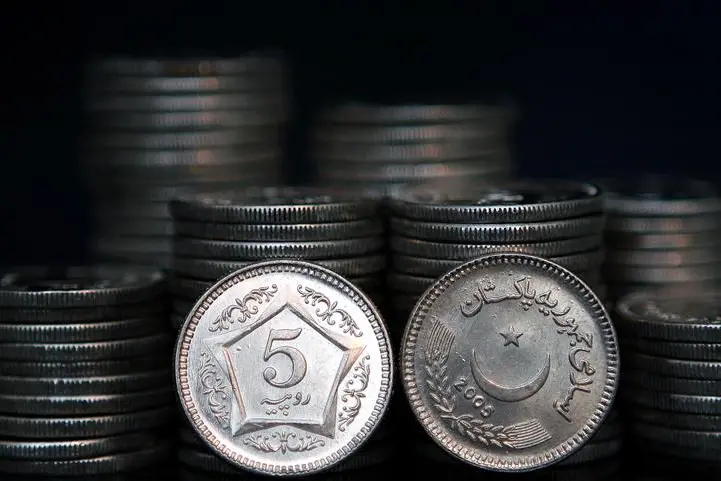PHOTO
KARACHI, Pakistan - Pakistan's rupee currency fell more than 3.6% against the dollar on Thursday following an agreement with the International Monetary Fund on a $6 billion loan that is expected to come with strict conditions including a "market determined" exchange rate.
The rupee ended the day in the interbank market at 146.52 against the U.S. dollar, compared to the previous day's close of 141.40, the State Bank of Pakistan said.
"This movement reflects demand and supply conditions in the foreign exchange market. It will help in correcting market imbalances," the State Bank's chief spokesman said in an emailed statement.
The rupee's official exchange rate is supported by the central bank under a de facto managed float system and many analysts consider the currency to be overvalued.
The currency has lost more than a third of its value against the dollar since the start of last year amid mounting economic challenges for Pakistan, which is facing slowing growth and a squeeze on its balance of payments.
According to data from the State Bank, the central bank's foreign exchange reserves as of May 3 stood at $8.984 billion, equivalent to less than three months of import payments.
Under a staff level accord with the IMF announced on Sunday, the Fund, which has long pushed Pakistan to stop propping up the currency, said a "market-determined" exchange rate would help the financial sector.
"Basically, the sudden spike of the dollar against the rupee is due to the impact of the IMF deal plus a shortage of dollars in the market," said Saad Hashemy, chief economist and director of research at Topline Securities in Karachi.
With inflation running at more than 8%, a weaker currency is likely to add to pressure on household budgets, particularly on power and gas bills, where the government faces growing pressure to allow regulated prices to rise.
Fawad Khan, head of research at BMA Capital Management, said the decline in the rupee was expected after the staff level agreement, which must still be approved by the IMF board.
"In the second step, we might see an upward revision of utility prices," he said.
Prime Minister Imran Khan's government, which had been reluctant to seek a bailout from the IMF, has reacted with unease to the prospect of a sharp drop in the exchange rate and officials said currency dealers were warned against speculation.
"They were warned that the government will not accept artificial devaluation. They will face the consequences," said one government official, who spoke on condition of anonymity.
As the rupee fell, Pakistan's main stock market indexes also declined, but recouped some losses at the end of the day, with the benchmark KSE 100 .KSE index ending down 0.93% and the KMI 30 index closing down 0.9%.
(Reporting by Syed Raza Hassan; Editing by Kim Coghill and Darren Schuettler) ((james.mackenzie@thomsonreuters.com; +92 300 8566 702 ; Reuters Messaging: Reuters Messaging james.mackenzie.reuters.com@reuters.net))





















